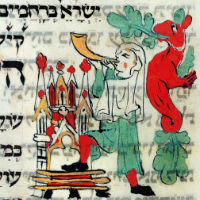
The Audacious Yehudah
As a concerned young adult living in Bangkok, I tried to make sense of the brokenness around me by doing volunteer work with like-minded meditation practitioners. Following the social action trail, we found ourselves in one of the many refugee villages along the Laotian/Thai border that continued to exist in the decade after the fall...
read more






